Case Study Analysis: Applying Agency Law to Real-World Scenarios
VerifiedAdded on 2023/01/10
|5
|725
|57
Case Study
AI Summary
This case study analysis examines three scenarios related to agency law. The first case explores whether Coby is bound by a purchase made by his agent, Peter, who exceeded the financial limit. The analysis focuses on the concepts of actual and ostensible authority, concluding that Coby is bound due to the ostensible authority. The second case investigates if Dan can sue Paul, his salesman, for secret profits made from a sale, concluding that Dan can sue Paul based on the agent's duty to avoid personal profit. The final case determines if Barry can recover costs from Justine, finding no agency relationship and thus no basis for recovery. The analysis references legal precedents and applies legal principles to resolve the issues.
1 out of 5
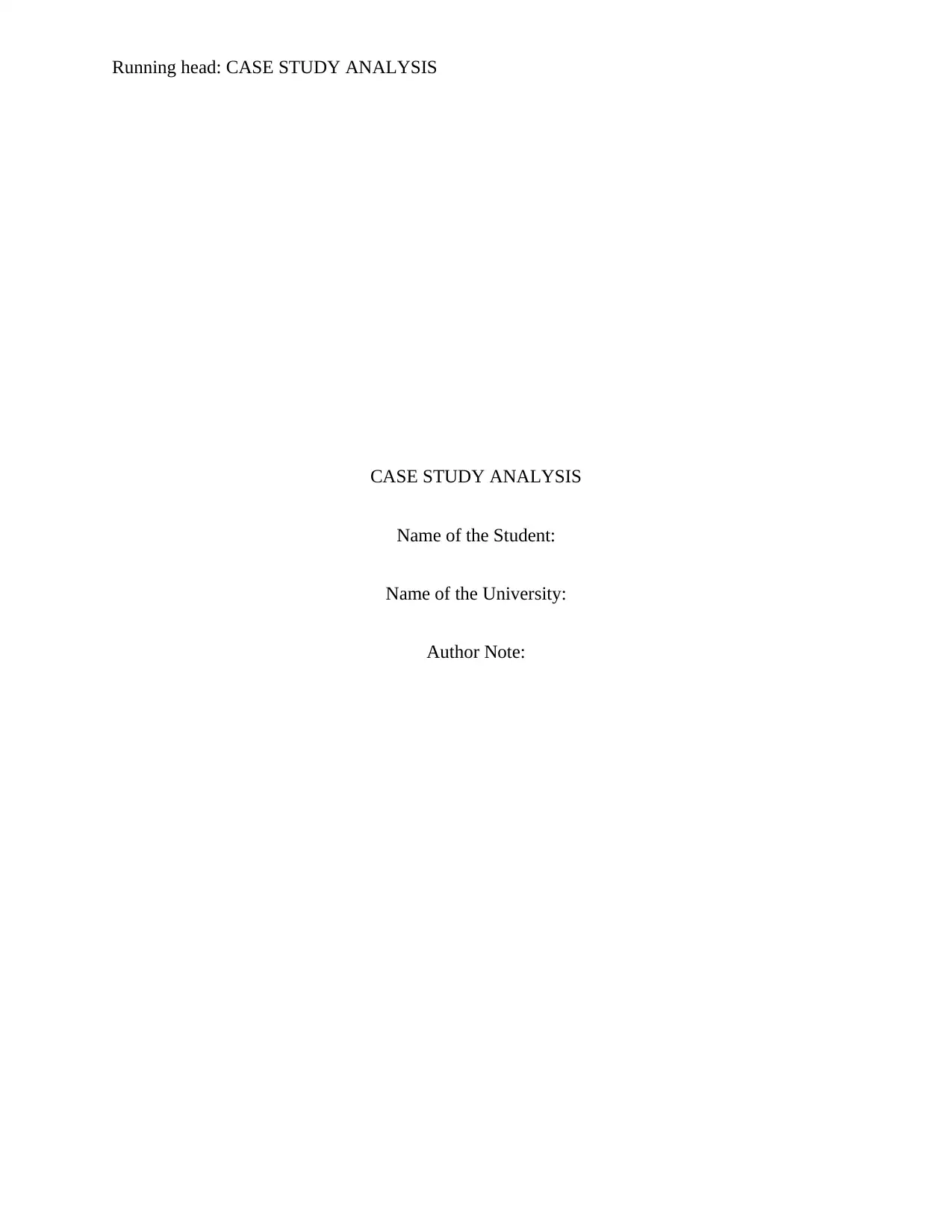
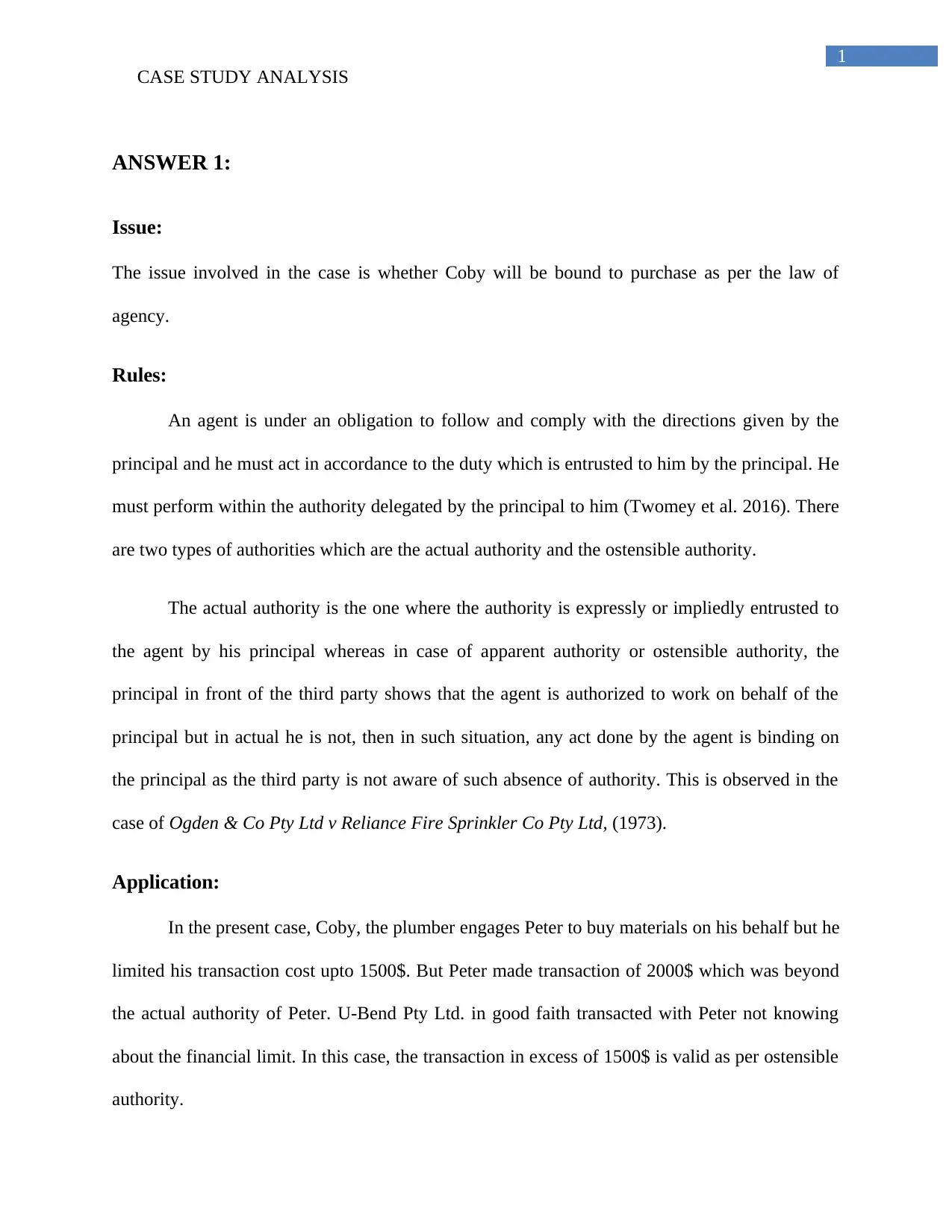
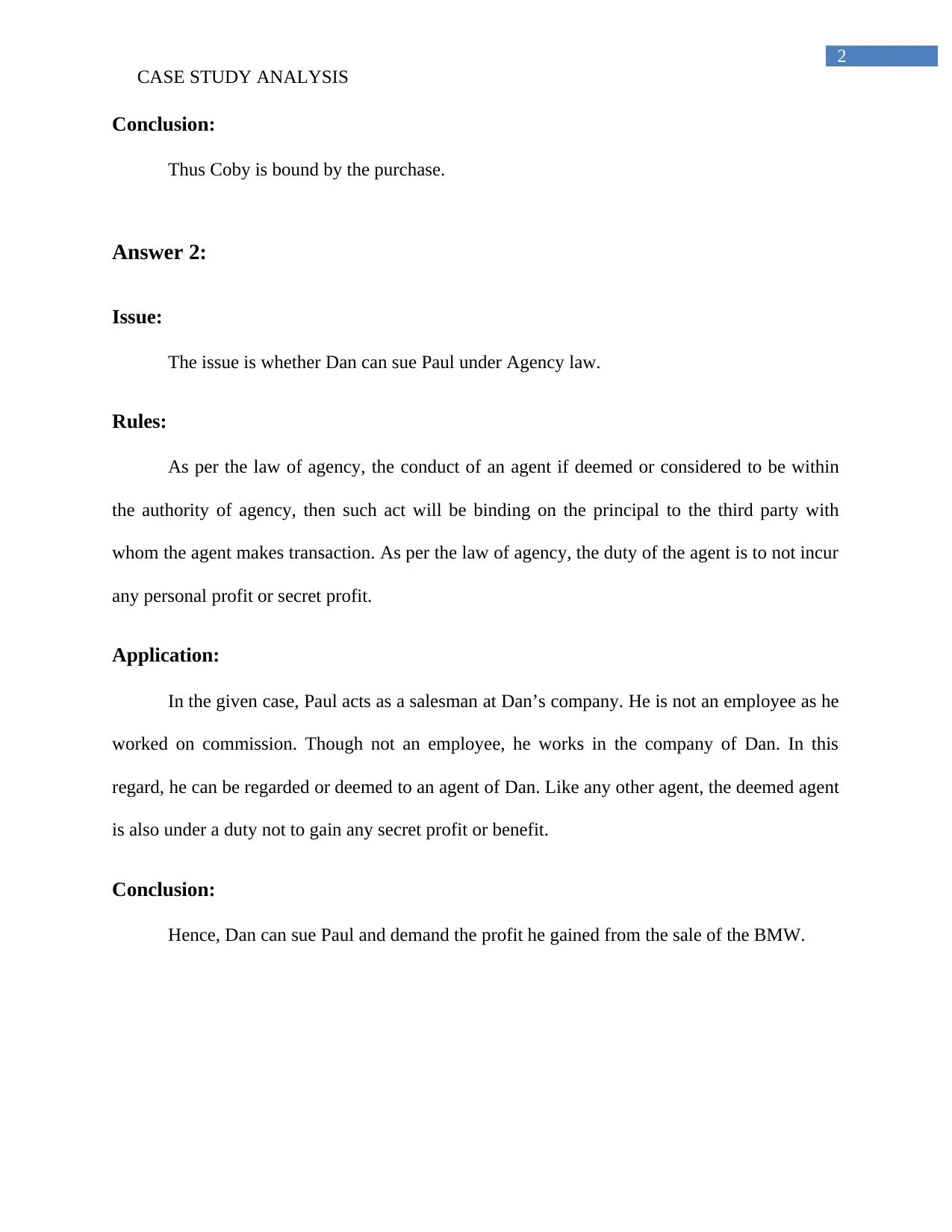

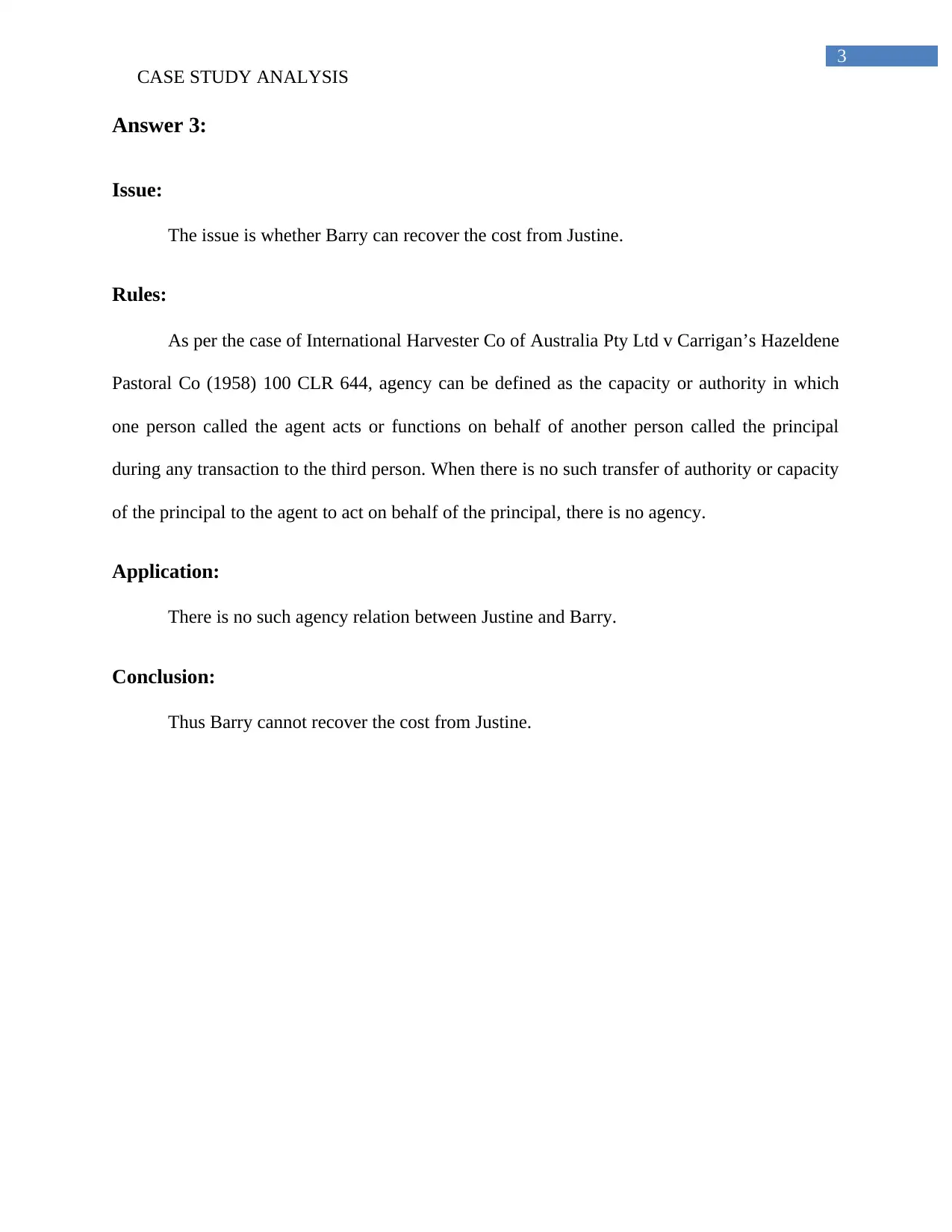
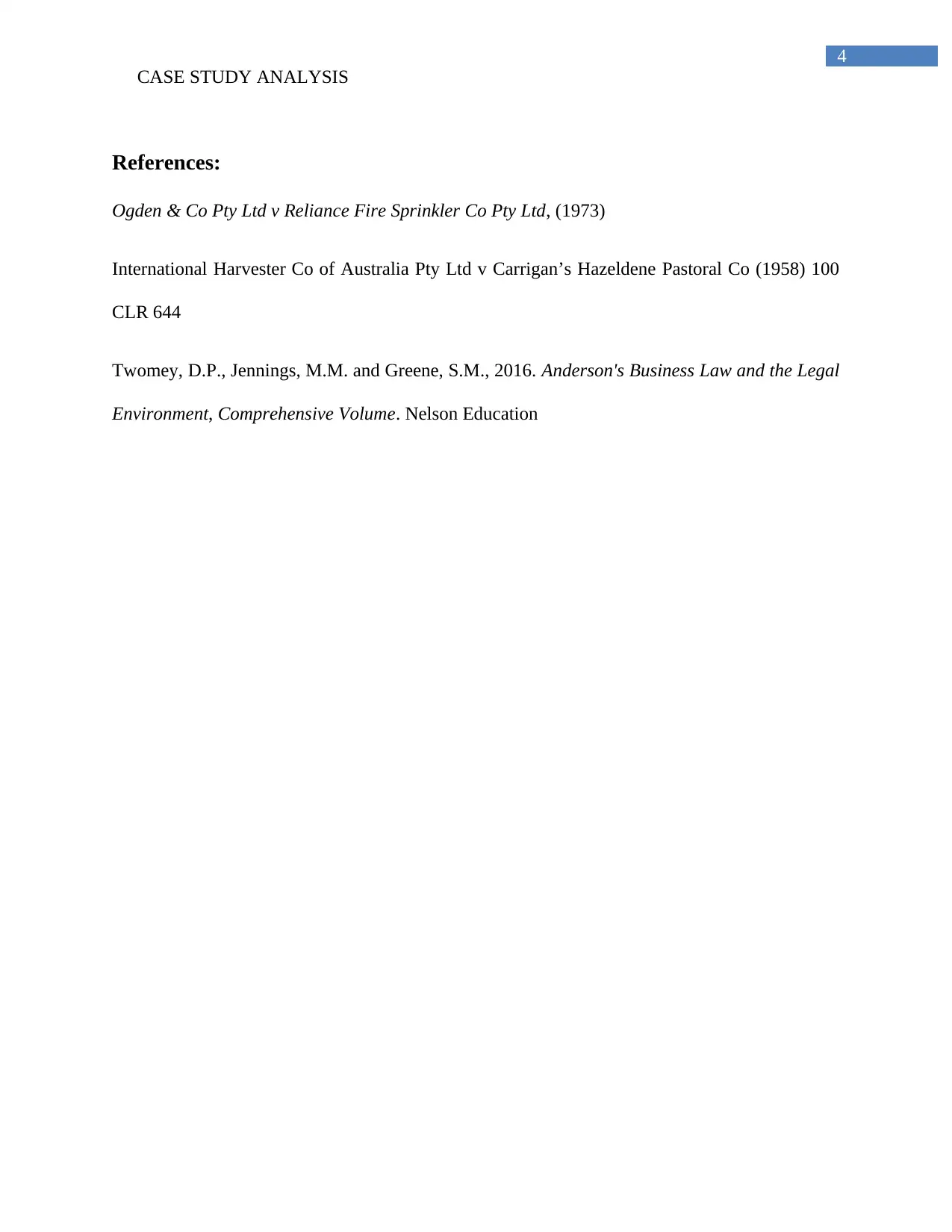






![[object Object]](/_next/static/media/star-bottom.7253800d.svg)